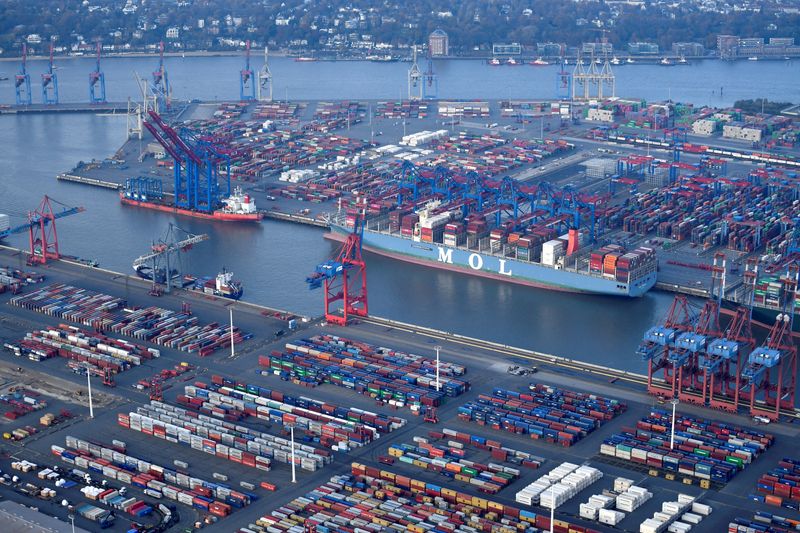BRUSSELS (Reuters) - The euro zone suffered a trade deficit for a fourth consecutive month in February as surging energy prices led to a sharp increase in the value of energy imports, data showed on Wednesday.
Eurostat said the non-adjusted trade deficit of the 19 countries sharing the euro was 7.6 billion euros ($8.2 billion) compared with a 23.6 billion euro surplus a year earlier in February 2021.
Payments for imports jumped by 38.8% year-on-year, while revenues from exports grew by only 17.0%.
Euro zone trade is rarely in deficit, but this was the fourth consecutive month of shortfall, albeit sharply lower than the January figure of 27.2 billion euros.
Before November, the euro zone previously had a negative trade balance in January 2014 and last experienced deficits of more than a single month in 2011.
Data for the whole 27-nation European Union showed the cost of energy imports more than doubled in January and February from a year earlier, with marked increases also for imports of food and drink, raw materials, chemicals and machinery.
The EU's trade deficits with energy supplier Russia more than tripled to 25.2 billion euros and with Norway grew from just 0.1 billion euros a year earlier to 10.7 billion euros in Jan-Feb. The deficit also nearly doubled with China to about 60 billion euros, and widened with India, Japan and South Korea.
The EU maintained surpluses with the United States, Britain
and Switzerland.
Adjusted for seasonal swings, the euro zone trade was also in deficit for a fifth consecutive month and the 9.4 billion euro figure for February was wider than January's 7.7 billion euro shortfall.
For Eurostat release, click on:

http://ec.europa.eu/eurostat/news/news-releases
($1 = 0.9244 euros)